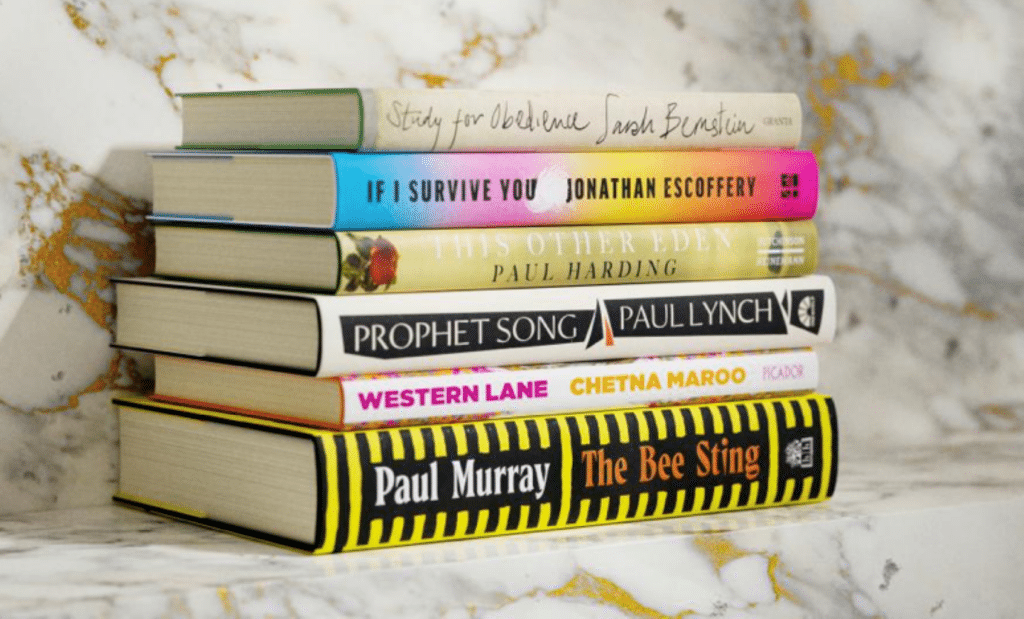This year’s Booker Prize shortlist has more writers named Paul than writers who are women.
Perhaps that’s just part of the annual cultish-buzz surrounding the prestigious prize.
The shortlisted authors of 2023 helm from Canada, US and Ireland, and range from their thirties to mid-fifties. The three Pauls — Paul Murray, Paul Lynch and Paul Harding, are all established writers, having pushed more than a dozen books between them.
The two women on the shortlist are Chetna Maroo and Sarah Bernstein.
Maroo, an Indian-British author born in Kenya, wrote her debut short-listed book, “Western Lane” over three years after quitting her job as an accountant to pursue writing full-time.
If her novel wins, Maroo will become only the sixth debut novelist to win the prize since the Booker began in 1969.
In an interview, Maroo described her writing process as seemingly “unwise” — “I write slowly, the first pages in longhand, then typing…I know I’ll eventually cut sections that I’ve spent weeks or months going over, but I have no other way.”
“As I was writing, I was feeling my way. I didn’t have a plot or outline for the whole novel.”
Maroo’s novel, which follows the story of an 11-year old adolescent recovering from the death of her mother, has received critical praise, with the New York Times calling it “graceful”, The Guardian calling it “a tender debut”, and this year’s Booker Prize judges calling it “deeply evocative debut about a family grappling with grief, conveyed through crystalline language.”
Sarah Bernstein, 36, was born in Montreal and now lives in Scotland. Her shortlisted book “Study for Obedience” is her second novel.
The novel, which follows a young woman navigating the politics of a small, rural town after the breakdown of her brother’s marriage, was described as “masterly” by The Guardian. The judges of the Booker Prize said Bernstein’s novel contained “urgent, crystalline prose.”
As a Granta Best of Young British Novelist of 2023, Bernstein joins previous Granta-listed novelists including Sally Rooney, Zadie Smith, Jeanette Winterson and Kazuo Ishiguro — all of whom are also fellow Booker Prize nominees.
The Booker Prize has historically recognised male writers as its winners — since it was first awarded 54 years ago, 36 male writers have won.
The number of female winners? Eighteen. Two of these — Hilary Mantel and Margaret Atwood, have won the prize twice. Both writers have in fact been nominated for the prize for a total of six times each.
Atwood’s latest win in 2019, caused a bit of a stir, as she was named a joint-winner, alongside UK author Bernardine Evaristo, who was the first Black woman to win the prize. The pair weren’t the first women who shared first place — in 1974, South African writer Nadine Gordimer shared her prize with Stanley Middleton.
The youngest ever prize winner was New Zealand writer, Eleanor Catton who won in 2013, aged 28, for her modern classic “The Luminaries.”
The prize has not been immune from controversy (though, which literary prize can wear that badge?)
In 2014, the year Australian author Richard Flanagan won for his novel, “The Narrow Road to the Deep North”, one of the female judges penned an essay for The Guardian, addressing the criticism against the prize for its “institutional sexism”.
“I learned from ever-helpful social media that my fellow judge Erica Wagner and I are personally responsible for patriarchal hegemony. We only long-listed three women out of 13 writers and so we are a disgrace to the sisterhood.”
“I’m terribly sorry that I didn’t correct for institutionalised sexism while I was at it,” she said, before going on to blame the phenomena on the “function of systemic institutional sexism in our culture.”
“…out of those 156 books, publishers only submit a fraction of women,” she explained. “The same point goes for racial diversity: either we six people, all of whom work on behalf of literacy and education, are sexist, racist troglodytes, or we live in a racist, sexist world and the publishing culture reflects that.”
In 2001, an anonymous female judge was famously said to have told her fellow judges, “I believe that if Jane Austen’s Persuasion came up now it wouldn’t even make the call-in list.”
That year, a total number of 119 entries were submitted — among them, 35 were by women.
“If you take a look at the long-list – only seven come from women – exactly the same proportion,” a male judge stated.
“It doesn’t make sense as there are a lot of good novels by women which are not being submitted.”
In both 2022 and 2021, half of the shortlisted writers were women. Last year, the were NoViolet Bulawayo, Claire Keegan and Elizabeth Strout. In 2021, they were Maggie Shipstead, Nadifa Mohamed, and Patricia Lockwood.
This year’s winner, who will take home £50,000 ($AUD95,585) will be announced in London on November 26.



